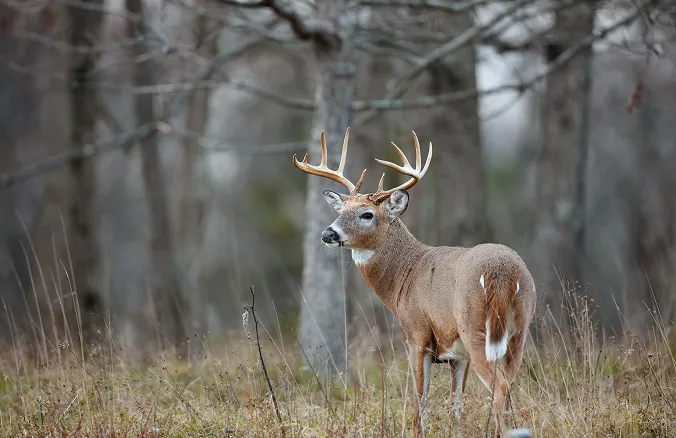Aurora & Anew Issue ACR's IFM 2.1 Carbon Credits
Leaders in sustainable land management
Aurora, a major holder of FSC Forest Management certificates in the U.S., sustainably manages over 1.6 million acres of forestland. Focusing on diverse ecosystems rather than monocultures, we emphasize carbon sequestration. Our sustainable practices include bird-friendly forestry, watershed management, and enhancing biodiversity, all with a keen focus on addressing climate impact.
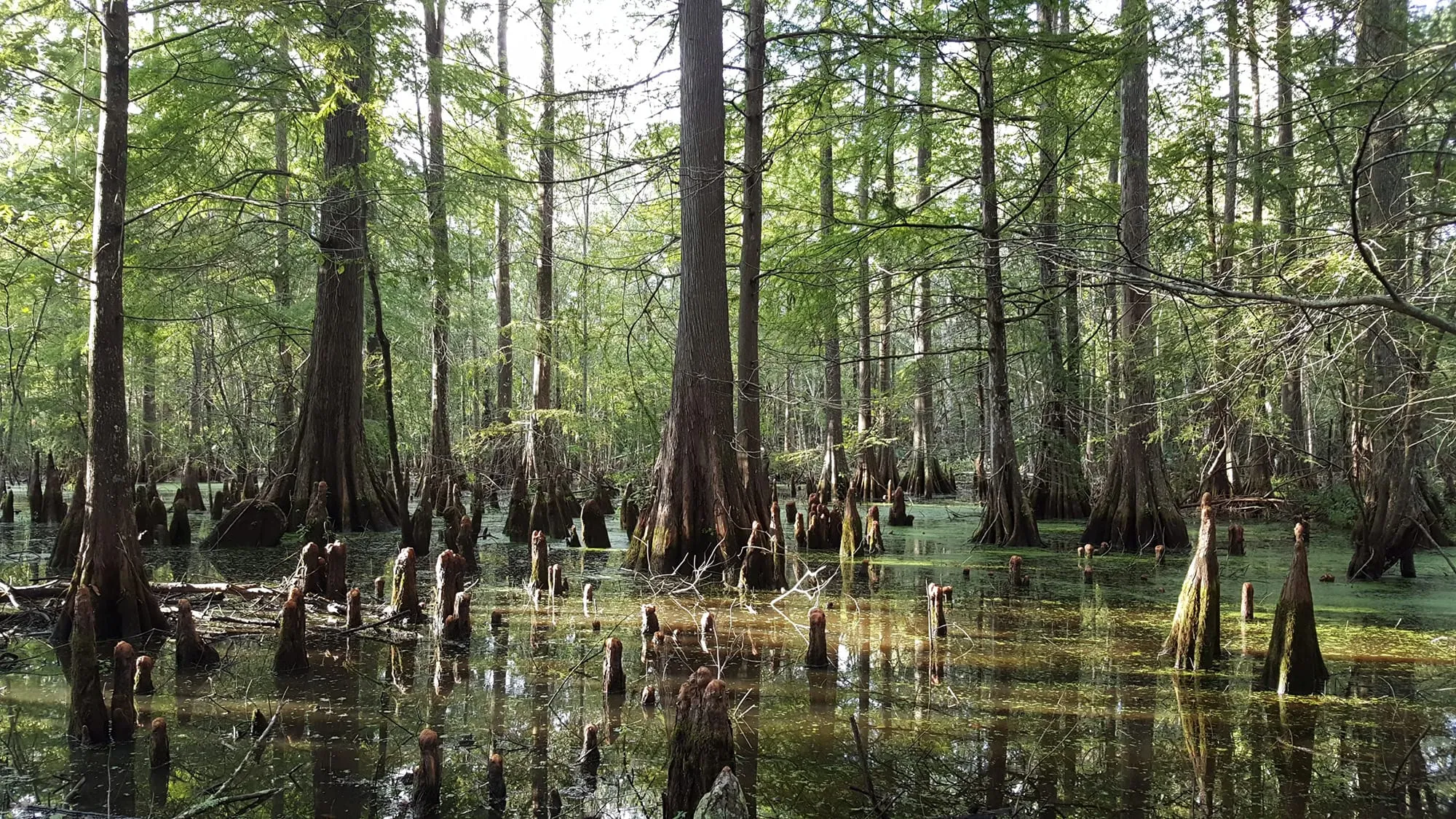
Bird-friendly forestry in West Virginia
Aurora and several partners, including the Forest Stewards Guild and Wildlands Network, are showcasing bird-friendly forestry in Appalachian hardwood forests for the cerulean warbler, wood thrush, and golden-wing warbler. This project covers over 5,000 acres in West Virginia's Monongahela region, aiming to maintain healthy habitats for these birds.
Sustainability vs. impact
Unlike traditional sustainability ESG risk factors which assess material risk, "Impact" in an investment context describes intentional action taken by investors to drive positive social change with defined missions and clear metrics showing measurable influence beyond financial return and risk avoidance.
Aurora identifies four key values to guide our sustainability and impact work: Transparency, Climate Impact, Ecological Function, and Adaptive Management. These principles form the foundation of Aurora's approach to managing 1.6+ million acres of forestland, ensuring accountability through clear standards and measurable progress, addressing climate change through carbon sequestration and forest resilience, enhancing ecosystem services through restoration projects, and embracing a cyclical process of continuous improvement through data-driven insights and implementation.
Transparency
Climate Impact
Ecological Function
Adaptive Management
Biodiversity + wildlife
Aurora has partnered with the State of Kentucky's Department of Fish & Wildlife to maintain a Wildlife Management Area (WMA) on approximately 31,000 acres of our Kentucky forestlands to foster the successful reintroduction and management of elk, a keystone species. This WMA, located in the heart of core elk restoration areas of interest for Kentucky, provides for recreational access, wildlife management activities conducted by the State, and allows for limited publicly regulated hunting for elk and other species. Beyond this partnership, Aurora is currently in discussions and negotiations with certain states and non-profits about expanding recreational and conservation easements, anticipating announcements of potential new partnerships over the next year or two.
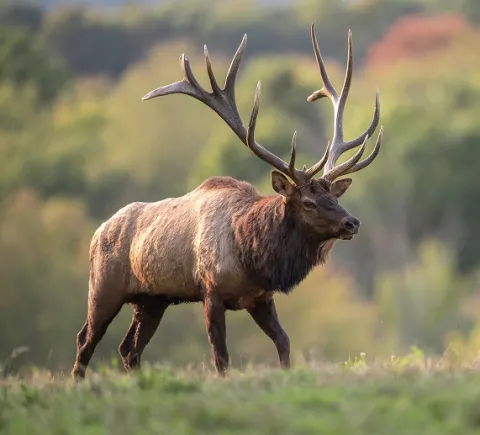
Water
Aurora partnered with the New Hampshire Department of Environmental Services to assess stream crossings in the Connecticut Lakes Headwaters Working Forest. We hired a local intern to collect essential data on geomorphic compatibility, aquatic organism passage, and structural conditions over a 12-week period. This data helps prioritize crossing replacements, improving road work, water quality, and upstream navigation for aquatic life. This work demonstrates our commitment to biodiversity, ecological health, and enhanced access for recreation lessees.
Community
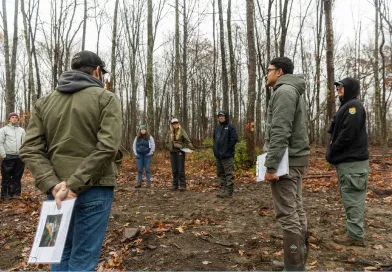
Aurora hosted workshops for natural resource practitioners and landowners in May and November of 2024, allowing participants to tour demonstration sites and learn about bird-friendly forestry, including bird identification, tailored management practices, and resources for connecting with local foresters. Aurora consistently strives to educate neighbors, community groups, and the public about their mission and how they achieve their goals through active management.

Philanthropy
Aurora backs mission-aligned projects, funding scholarships and a Forestry Entrepreneurship Center at West Virginia University through The Forestland Group Legacy Foundation. It also supports communities by donating to disaster relief and matching Red Cross donations after Hurricanes Helene and Milton.
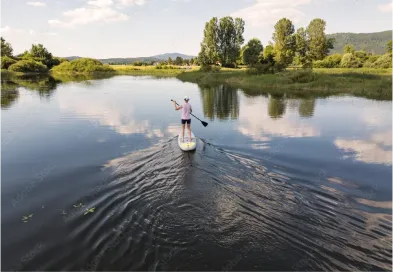
Recreation
Aurora offers various recreational activities, including hiking, biking, fishing, snowmobiling, cross-country skiing, ATV use, and paddle access across its 1.6+ million acres of forestland. It also has a recreation lease program for camping and hunting that helps prevent illegal trespassing and dumping.
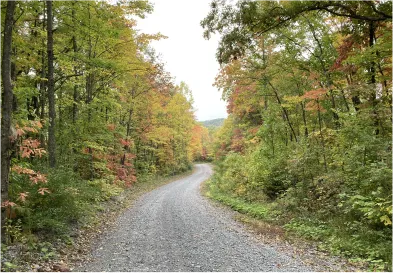
BMP Trainings
In July 2024, Aurora and West Virginia's Department of Forestry created an independent BMP training class for foresters and consultants in the state, covering topics like BMPs for loggers, reclamation, and mapping in logging. Aurora's 115-page Forest Operations Policy and Procedure Manual includes over 30 policies for managing forestlands, emphasizing state-specific BMPs.
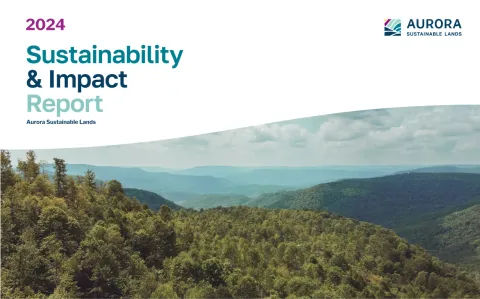
Reporting frameworks
TCFD (Task Force on Climate-related Financial Disclosures):
A framework used to assess and disclose climate-related financial risks and opportunities that guide Aurora's strategy for managing climate impacts on our forestlands.
SASB (Sustainability Accounting Standards Board)
A set of industry-specific standards for disclosing material sustainability information to investors, helping Aurora identify and report on key metrics for the forestry sector.
SFDR (Sustainable Finance Disclosure Regulation):
A European regulatory framework that provides standardized sustainability disclosures for financial market participants, enabling Aurora to demonstrate transparency in our sustainability practices.
FSC Reporting (Forest Stewardship Council):
FSC is the leading global certification body for responsible forest management practices, operating the world's most rigorous and trusted forest verification system. Defining responsible forestland management activities through ten principles and 56 associated criteria including compliance with local laws, indigenous peoples' rights, environmental impact, management plans, maintenance of high conservation value forests, among others.

